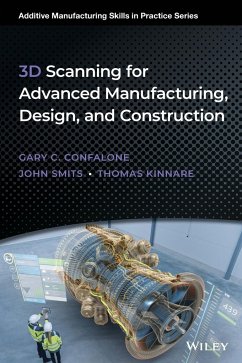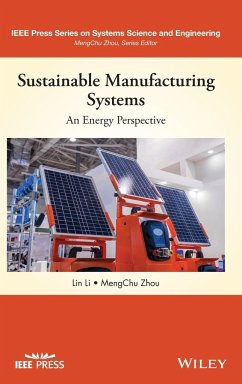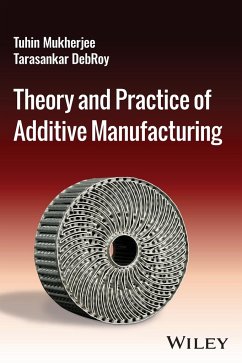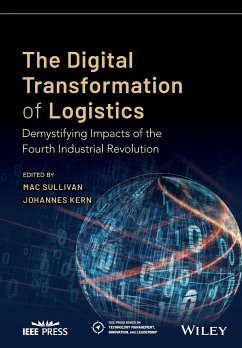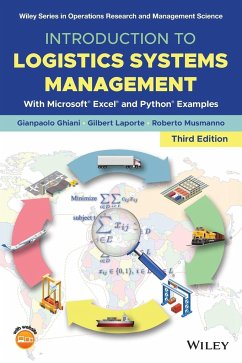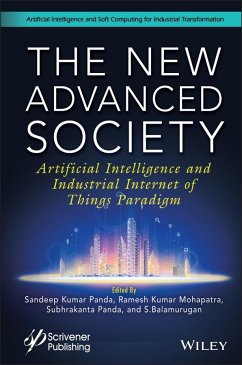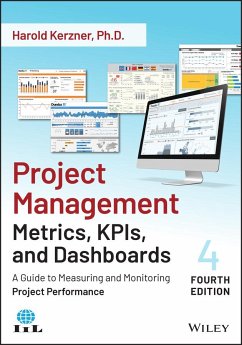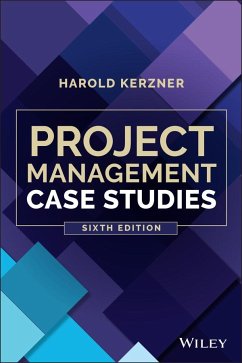
Factories of the Future
Technological Advancements in the Manufacturing Industry
Herausgegeben: Singh, Chandan Deep; Kaur, Harleen
Versandkostenfrei!
Versandfertig in über 4 Wochen
189,99 €
inkl. MwSt.
Weitere Ausgaben:

PAYBACK Punkte
95 °P sammeln!
FACTORIES OF THE FUTUREThe book provides insight into various technologies adopted and to be adopted in the future by industries and measures the impact of these technologies on manufacturing performance and their sustainability.Businesses and manufacturers face a slew of demands beyond the usual issues of staying agile and surviving in a competitive landscape within a rapidly changing world. Factories of the Future deftly takes the reader through the continuous technology changes and looks ten years down the road at what manufacturing will mostly look like.The book is divided into two parts: ...
FACTORIES OF THE FUTURE
The book provides insight into various technologies adopted and to be adopted in the future by industries and measures the impact of these technologies on manufacturing performance and their sustainability.
Businesses and manufacturers face a slew of demands beyond the usual issues of staying agile and surviving in a competitive landscape within a rapidly changing world. Factories of the Future deftly takes the reader through the continuous technology changes and looks ten years down the road at what manufacturing will mostly look like.
The book is divided into two parts: Emerging technologies and advancements in existing technologies. Emerging technologies consist of Industry 4.0 and 5.0 themes, machine learning, intelligent machining, advanced maintenance, reliability, and green manufacturing. The advances of existing technologies consist of digital manufacturing, artificial intelligence in machine learning, Internet of Things, product life cycle, and the impact of factories on the future of manufacturing performance of the manufacturing industries.
Readers will find in this illuminating book:
_ A comprehensive discussion of almost all emerging technologies, including "green" manufacturing;
_ An overview of the social, economic, and technical aspects of these technologies;
_ An explanation of these technological advancements on manufacturing performance, through case studies and other analytical tools.
The book provides insight into various technologies adopted and to be adopted in the future by industries and measures the impact of these technologies on manufacturing performance and their sustainability.
Businesses and manufacturers face a slew of demands beyond the usual issues of staying agile and surviving in a competitive landscape within a rapidly changing world. Factories of the Future deftly takes the reader through the continuous technology changes and looks ten years down the road at what manufacturing will mostly look like.
The book is divided into two parts: Emerging technologies and advancements in existing technologies. Emerging technologies consist of Industry 4.0 and 5.0 themes, machine learning, intelligent machining, advanced maintenance, reliability, and green manufacturing. The advances of existing technologies consist of digital manufacturing, artificial intelligence in machine learning, Internet of Things, product life cycle, and the impact of factories on the future of manufacturing performance of the manufacturing industries.
Readers will find in this illuminating book:
_ A comprehensive discussion of almost all emerging technologies, including "green" manufacturing;
_ An overview of the social, economic, and technical aspects of these technologies;
_ An explanation of these technological advancements on manufacturing performance, through case studies and other analytical tools.






